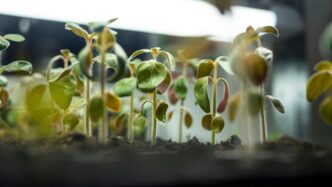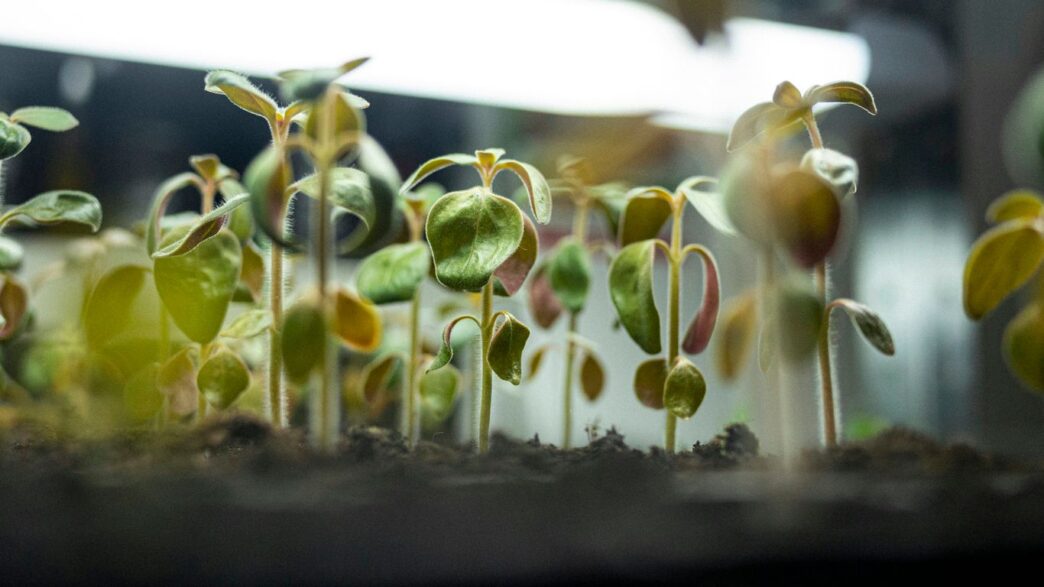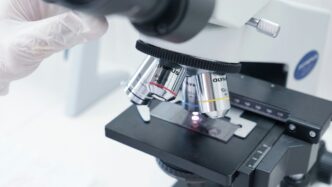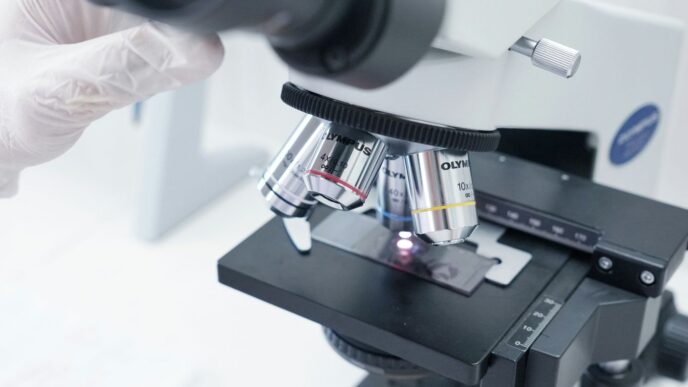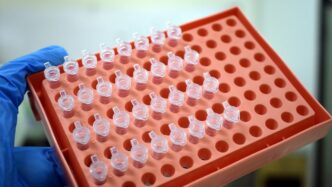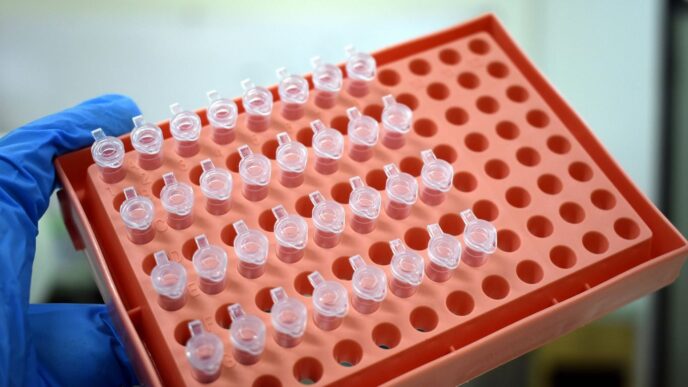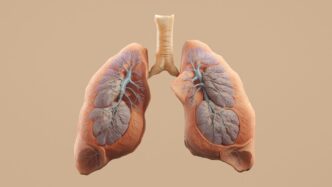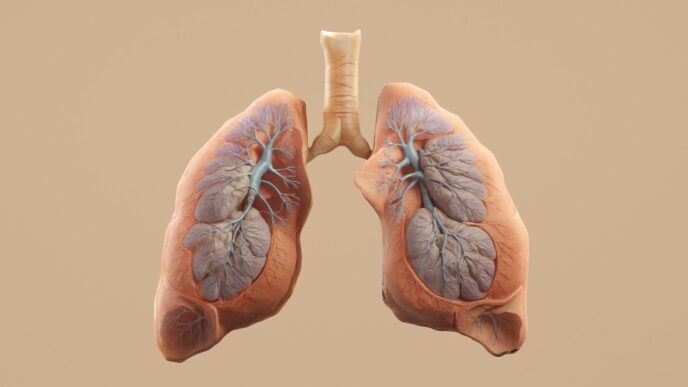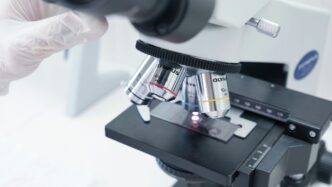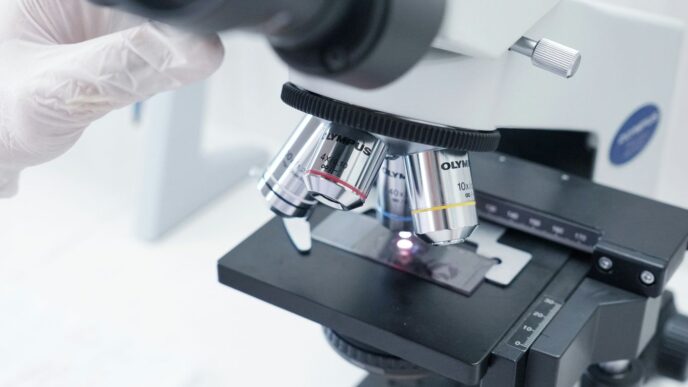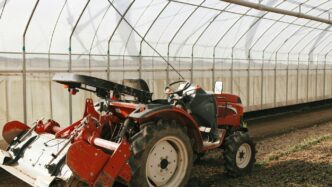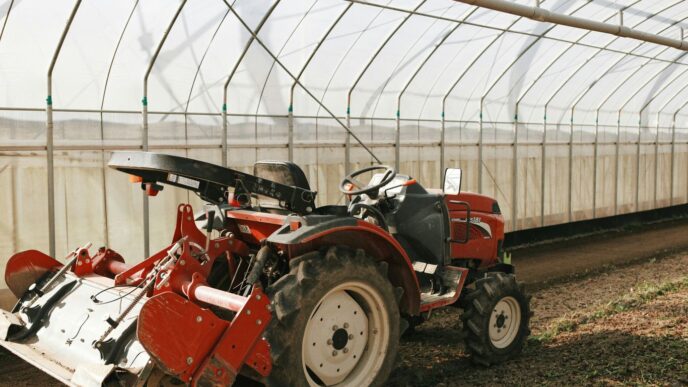Farming is changing, and a big reason for that is science. We’re talking about biotechnology and agriculture working together to figure out how we’ll feed everyone in the years to come. It’s not just about growing more food, but also about growing it better, making it healthier, and doing it in a way that doesn’t hurt the planet. Think of it as giving our farms a serious upgrade, using smart tools and knowledge to tackle some pretty big problems.
Key Takeaways
- Biotechnology is changing how we grow food, making farms more efficient and crops better.
- New science helps crops survive tough weather like heat and drought, and fight off pests and diseases.
- Food can be made more nutritious, helping to fight malnutrition and improve people’s health.
- Farming can use fewer chemicals, which is good for the environment and keeps our land healthier.
- Future farming will likely involve even more tech, like digital tools, to make farming smarter and more accessible for everyone.
Revolutionizing Farming Through Biotechnology
Farming, as we know it, is changing. For centuries, we’ve relied on the sun, rain, and soil, but the world is throwing more challenges our way – think unpredictable weather and a growing population that needs feeding. Traditional methods just aren’t cutting it anymore. This is where biotechnology steps in, offering a whole new toolkit for farmers. It’s not just about making things grow faster; it’s about making them grow smarter, tougher, and more sustainably.
The Evolution of Biotech Agriculture
Agricultural biotechnology isn’t exactly brand new, but it’s really hitting its stride now. Think back to the early days of genetically modified (GM) crops. They were a big deal, helping farmers deal with pests and weeds more easily. But that was just the start. Today, we’re seeing a much more sophisticated approach. We’ve moved beyond just inserting a gene or two. Now, we’re talking about precise gene editing, using microbes to help plants, and even combining a bunch of helpful traits into one plant. It’s a far cry from just a few decades ago, and it’s all about adapting to what the planet and its people need.
Core Biotech Technologies Transforming Agriculture
There are a few key technologies really driving this change:
- Genetic Engineering: This is the classic approach, where specific genes are added to a plant to give it a new ability, like resisting a certain bug or tolerating a common weed killer. Many of the crops you see today, like corn and soybeans, have benefited from this.
- Genome Editing (like CRISPR): This is like a super-precise editor for a plant’s own DNA. Instead of adding new genes, it tweaks the existing ones. This can speed up improvements dramatically and often avoids the concerns some people have about GM crops.
- Microbial Biotechnology: This involves using helpful tiny organisms, like bacteria and fungi. They can act as natural fertilizers, helping plants get the nutrients they need from the soil, or as biopesticides, protecting plants without harsh chemicals.
- Trait Stacking: This is simply combining multiple useful traits into a single plant. Imagine a crop that’s not only resistant to a common disease but can also handle dry spells. That’s trait stacking in action.
Understanding the Role of Biotechnology in Agriculture
So, what does all this mean for farming? Biotechnology is essentially giving us the power to design crops and livestock that are better suited to our current challenges. It means we can grow more food on less land, use fewer chemicals that can harm the environment, and create plants that are more resilient to things like drought or new diseases. It’s about making agriculture more efficient and less impactful on the planet, all while trying to feed a growing world. It’s a complex field, but its impact on how we produce food is undeniable.
Enhancing Crop Resilience and Productivity
Farming has always been a bit of a gamble, right? You plant your seeds, hope for the best, and cross your fingers that the weather cooperates and no weird bugs show up. But what if we could tilt the odds a bit more in our favor? That’s where biotechnology really steps in, helping us create crops that are tougher and yield more, even when things get tough.
Building Climate-Resilient Crops
Climate change is making weather patterns more unpredictable. We’re seeing more intense heatwaves, longer dry spells, and sometimes, sudden floods. Biotechnology is giving us tools to develop crops that can handle these extremes. Think of it like giving plants a built-in survival kit for a changing world. This ability to adapt is becoming super important for keeping our food supply steady.
Drought and Heat Tolerance Innovations
Water is getting scarcer in many places, and temperatures are climbing. Scientists are using gene editing, like CRISPR, to tweak specific genes in crops. This helps them use water more efficiently or survive higher temperatures without wilting. We’re seeing more corn, wheat, and rice varieties that can handle less water and more heat, which is a big deal for farmers in drier regions.
Salt and Flood Tolerance Solutions
For areas near the coast or those that get a lot of rain, dealing with salty soil or waterlogged fields is a constant headache. Biotech is helping create crops, like certain types of rice and soybeans, that can actually grow in these challenging conditions. This means more land can be used for farming, even in places that were previously too difficult.
Pest and Disease Resistance Traits
Dealing with pests and diseases can be a never-ending battle, often leading to heavy pesticide use. Biotechnology allows us to build natural defenses right into the plants themselves. For example, Bt cotton has a gene that makes it resistant to certain insects, meaning farmers don’t need to spray as much. This not only saves money but is also much better for the environment and the people working the fields.
Nutritional Enhancement and Food Security
It’s pretty wild how much our food can affect our health, right? For a long time, we’ve known that eating poorly can make us more likely to get sick. Now, with a better grasp of nutrition science, we’re seeing how improving what we eat could really cut down on things like diabetes, heart problems, and even some cancers. A big part of this is tackling obesity, which has become a massive strain on healthcare systems everywhere.
Biofortification for Malnutrition Combat
One of the most exciting areas is making staple crops, the foods most people rely on daily, much more nutritious. Think about it: if we can boost the vitamins and minerals in things like rice, corn, or beans right from the start, we can make a huge difference for people who don’t get a varied diet. This process is called biofortification. It’s not about adding supplements after the fact; it’s about breeding or genetically improving the plants themselves to have higher levels of key nutrients.
- Golden Rice: This is probably the most famous example. It’s been engineered to produce beta-carotene, which our bodies turn into Vitamin A. Vitamin A deficiency is a major cause of blindness and other health issues in many parts of the world.
- Iron-Rich Beans: In regions where anemia is common, especially among women and children, developing bean varieties with more iron can be a game-changer.
- Zinc-Fortified Wheat: Zinc is important for immune function, and boosting its levels in wheat can help populations that depend heavily on this grain.
The goal here is simple: make the food people already eat work harder to keep them healthy.
Functional Foods and Health Benefits
Beyond just basic nutrition, scientists are creating what are called ‘functional foods.’ These are foods that offer extra health perks. You’ve probably heard of probiotics, like those found in yogurt. These good bacteria can help balance the microorganisms in our gut, which we now know play a big role in our overall health. Research into our gut microbiome is moving fast, and it’s opening doors to new ways to help with things like metabolic disorders and even some cancers.
Addressing Food Allergies Through Biotech
Food allergies have become a really big deal over the last few decades. It’s tough for people who have them, and it can be scary. Biotechnology is starting to offer some hope here too. By understanding the specific genes and proteins in plants that trigger allergic reactions, scientists are exploring ways to create versions of foods that are less likely to cause problems. Imagine a peanut that doesn’t trigger an allergic response, or a wheat variety that’s easier for sensitive individuals to digest. It’s still early days for some of these ideas, but the potential to improve the lives of millions is pretty significant.
Biotechnology and Environmental Sustainability

Reducing Chemical Dependency in Farming
It’s pretty wild how much we used to rely on sprays and powders to keep our crops healthy. For ages, the go-to method for dealing with bugs and weeds was, well, chemicals. Lots of them. This approach, while it boosted yields for a while, came with a hefty environmental price tag. Think about the runoff into our rivers and the impact on helpful insects. Biotechnology is changing that game. By developing crops that have built-in defenses against pests or can handle certain herbicides without damage, farmers can cut back significantly on the amount of synthetic pesticides and herbicides they need to use. It’s not about eliminating them entirely, at least not yet, but it’s a massive step towards a cleaner farming system. This reduction in chemical use is a big win for soil health, water quality, and the overall ecosystem on and around the farm.
Preserving Biodiversity with Biotech
Biodiversity is like nature’s insurance policy, and frankly, it’s been under a lot of pressure. When we rely on just a few types of crops, and those crops are vulnerable to disease or climate shifts, we’re in trouble. Biotechnology offers ways to protect this variety. For starters, by making crops more resilient to local conditions and pests, we might not need to clear as much new land for farming. That means existing habitats can stay put. Also, biotech tools can help us develop or preserve a wider range of crop varieties, including those that might be better suited to changing climates or have unique nutritional benefits. It’s about having a more robust and diverse food supply that can weather different storms, both literally and figuratively.
Biotech’s Role in Regenerative Agriculture
Regenerative agriculture is all about working with nature, not against it, to heal the land. Biotechnology fits into this picture in some interesting ways. For example, using microbes – tiny organisms in the soil – can help plants get the nutrients they need without synthetic fertilizers. These beneficial microbes can improve soil structure, help plants absorb water better, and even protect them from diseases. Think of it as giving the soil a healthy boost. Biotech also helps create crops that might need less tilling, which is great for keeping soil intact and preventing erosion. It’s a complex puzzle, but the idea is that by using smart science, we can farm in ways that actually improve the environment, rather than just trying to minimize the damage.
The Future of Biotechnology and Agriculture
So, what’s next for biotech in farming? It’s a pretty exciting space, honestly. We’re seeing a lot of new ideas pop up that could really change how we grow food.
Emerging Biotech Trends Shaping Agriculture
One big thing is how we’re getting smarter about using technology. Think AI, big data, and sensors all working together with new kinds of crops. It’s all about making farms run better and be kinder to the planet. We’re also seeing tools like gene editing become more available, which is great for smaller farms that might not have had access before. Plus, there’s a growing focus on practices that actually help the environment, like improving soil health and capturing carbon.
Digital Integration in Farming Practices
This is where things get really interesting. We’re talking about farms that are practically run by computers. Sensors in the fields can tell us exactly what a plant needs, when it needs it. Drones can monitor crops from above, spotting problems before they get bad. This kind of precision farming means less waste – less water, less fertilizer, and fewer pesticides. It’s all about using data to make smarter decisions on the farm.
Opportunities for Small-Scale Farmers
For a long time, it felt like big tech and big farms were the only ones benefiting from these advances. But that’s changing. As the technology gets cheaper and easier to use, more small-scale farmers can get involved. Think about affordable tools for soil testing or simple apps that help manage crops. This democratization of technology is key to making sure everyone can take part in the agricultural revolution. It means more farmers, no matter their size, can grow better crops and make a better living.
The Road Ahead
So, where does all this leave us? It’s pretty clear that science and farming are getting pretty cozy, and honestly, it’s changing how we get our food. We’ve seen how new tech can help crops grow better, even when the weather’s rough, and how it might mean fewer chemicals sprayed everywhere. It’s not always a simple path, and there are definitely things to figure out, like making sure everyone can access these tools and that we’re all on the same page about how it all works. But looking ahead, it feels like this partnership between biotech and farming is going to be a big part of feeding everyone and keeping our planet healthier. It’s a work in progress, for sure, but the potential is huge.
Frequently Asked Questions
What exactly is biotech agriculture?
Biotech agriculture is like giving plants and animals special upgrades using science. It involves using smart techniques, like changing a plant’s genes a little bit, to help them grow better, fight off bugs, or survive tough weather. Think of it as helping nature do its best work, but faster and more reliably.
How does biotechnology help crops deal with climate change?
Climate change means more heat, less water, and crazy weather. Biotechnology helps create crops that are tougher. Scientists can make plants that need less water, can handle super hot days, or can even survive if the soil is too salty. This means we can still grow food even when the weather is difficult.
Can biotechnology make food healthier?
Yes! Biotechnology can make foods like rice or corn have more vitamins and minerals. This is super important for people who don’t get enough of certain nutrients in their regular diet. It’s like adding a vitamin boost directly into the food itself, helping to fight off sickness.
Does using biotechnology mean farmers use fewer chemicals?
Often, yes. Biotechnology can create crops that naturally fight off pests or tolerate certain weed killers. This means farmers don’t need to spray as much harmful stuff on their fields, which is better for the environment, the soil, and the people working on the farm.
Is biotechnology good for the environment?
It can be! By helping crops grow with fewer chemicals and less water, biotechnology can reduce pollution and save precious resources. It also helps protect different kinds of plants and animals by making farms more efficient and less damaging to natural habitats.
What’s next for biotechnology in farming?
The future is exciting! We’ll see even smarter crops that can do more, like change their own nutrients based on what the soil needs. Technology like AI and robots will work hand-in-hand with these advanced crops to make farming super efficient and sustainable for everyone.

